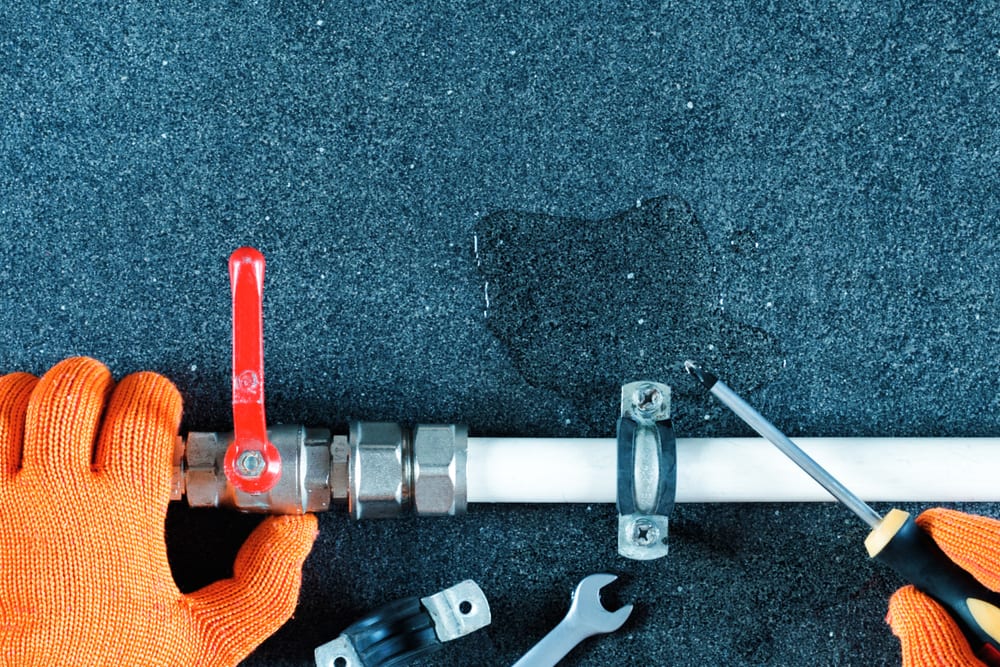Guide To Water Leakage Discovery In Your Home
Guide To Water Leakage Discovery In Your Home
Blog Article
Just how do you feel with regards to Leaking water lines?

Early detection of dripping water lines can mitigate a prospective disaster. Some small water leakages may not be visible.
1. Take A Look At the Water Meter
Examining it is a surefire way that helps you discover leaks. If it relocates, that indicates a fast-moving leak. This means you may have a slow leak that could even be underground.
2. Check Water Consumption
Evaluate your water bills and track your water consumption. As the one paying it, you should see if there are any kind of disparities. If you spot sudden changes, despite your intake coinciding, it suggests that you have leakages in your plumbing system. Bear in mind, your water costs must fall under the same range every month. A sudden spike in your costs shows a fast-moving leakage.
A stable rise every month, even with the exact same practices, shows you have a slow-moving leak that's additionally slowly rising. Call a plumber to completely examine your residential property, especially if you really feel a warm area on your floor with piping below.
3. Do a Food Coloring Test
When it comes to water consumption, 30% comes from bathrooms. If the shade somehow infiltrates your dish throughout that time without flushing, there's a leakage between the container and bowl.
4. Asses Outside Lines
Do not neglect to check your outdoor water lines as well. Ought to water leak out of the link, you have a loose rubber gasket. One small leakage can lose bunches of water and spike your water bill.
5. Inspect and Evaluate the Circumstance
House owners must make it a routine to inspect under the sink counters and even inside cabinets for any bad odor or mold and mildew development. These 2 red flags suggest a leak so prompt focus is called for. Doing regular assessments, even bi-annually, can conserve you from a significant issue.
A lot more significantly, if you know your home is currently old, maintain a watchful eye on your heating units, hoses, pipelines and so on. Look for discolorations and damaging as the majority of devices and pipelines have a life span. They will certainly likewise naturally wear away because of wear and tear. If you think dripping water lines in your plumbing system, don't wait for it to intensify. Call a professional plumber today so you do not wind up with a horrible mess in your home.
Early detection of dripping water lines can alleviate a potential disaster. Some little water leaks may not be noticeable. Inspecting it is a proven method that aids you find leakages. One tiny leakage can waste heaps of water and surge your water costs.
If you believe leaking water lines in your plumbing system, don't wait for it to rise.
5 Signs that Your Home Has a Hidden Leak
Your water bill is unusually high without explanation
Generally, your water bill tends to stay consistent throughout the year as long as the same number of people live in your household year round. The bill might be higher during certain times of the year, such as summer, when your lawn may require more watering than it does in cooler months. However, if you notice a rise in your water bill that you can’t explain, it’s an indicator that there’s a hidden leak somewhere in your home.
You hear running water
One of the biggest signs that you have a water leak is the sound of rushing water when no plumbing fixtures are on and when no water-using appliances are running. If you hear running water in your walls when no water is being used anywhere in your home, locate your home’s main water shut-off valve, shut off your water supply, and contact a plumber at once.
Your home smells musty
Hidden leaks often occur in dark spaces, such as behind walls or under carpeting. Incidentally, darkness and moisture can create an ideal breeding environment for mold or mildew. If you start to smell mildew or the scent of rotting wood or stagnant water around your home, it’s a fair bet that a leak is the culprit.
You find wet spots around your home
The wet spots usually show up as moist areas in your carpeting. If your home has a basement level, puddles on the floor could indicate a slab leak. Outside, unexplainable puddles or lush, green patches in your yard often mean that there’s a leak in your sewer line or main water line.
You have stains, bubbles, or condensation on your walls/ceiling
Stains or condensation on your walls or ceiling are both major signs of a hidden leak. Also, drywall (AKA. sheetrock) is very absorbent, and as it takes on more water from a leak behind a wall, it will start to bubble, swell, or warp. If you see this happening in your home, don’t wait to contact a plumber before the water damage spreads.
https://www.ezflowplumbingaz.com/blog/2019/june/5-signs-that-your-home-has-a-hidden-leak/

We were shown that editorial about Top leak detection hacks through a good friend on our other web blog. Are you aware of anybody else who is truly interested in the subject? Why not promote it. Thanks for your time. Visit us again soon.
Report this page